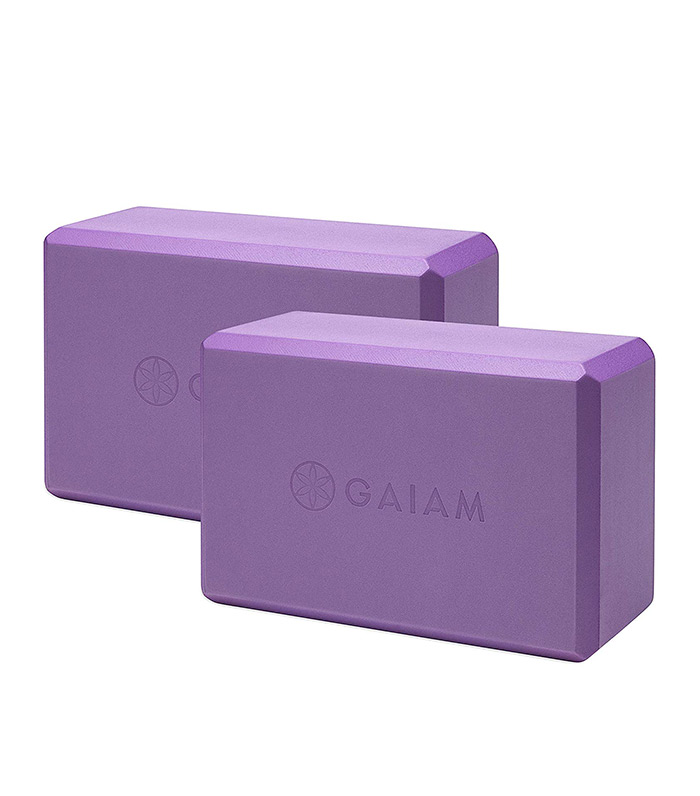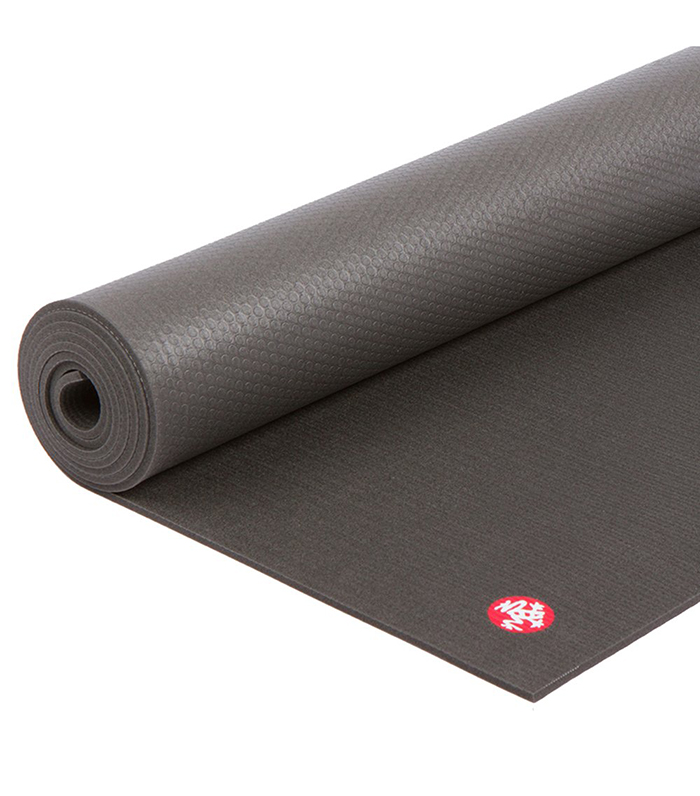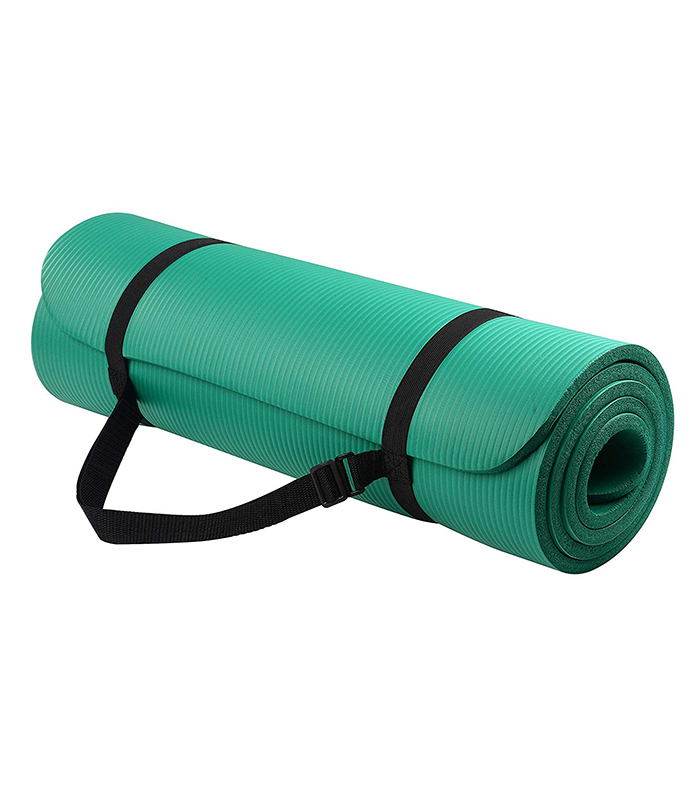Here's What Being "Grounded" Really Means (and 8 Yoga Poses to Get You There)

If you've ever taken a yoga class, you're probably familiar with the word "grounding." But what exactly does it mean? It's one of those esoteric terms used so readily by yoga teachers that we sometimes forget its significance. In yoga, the word serves as both an adjective (describing a centered, grounded feeling) and a verb (to physically ground down).
Physical grounding is all about finding a solid connection with the earth through bringing awareness into your body. You need to stop and take time to notice how your feet and hands feel when they make contact with the floor so that you can build a strong foundation for Asana, for example.
Grounding is about achieving equanimity by redirecting energy downward, which can feel strange or even a little backward at first. We are conditioned from a young age to aspire to up-ness. ("Grow up!" or "Wake up!") Learning to come back down to the earth pulls us into our physical experience of the here and now and helps us live in the moment.
Feeling grounded is essential, not just physically but psychologically. Most of us spend too much time in our heads (or on our phones!). This results in a lot of energy being focused upward into the mind, which causes an imbalance and makes us feel scattered or overwhelmed. Psychological grounding means occupying the present moment with a sense of calm despite any chaos or noise swirling around you. It will help you return to the big picture by connecting with something larger than yourself.
Life is all about balance. The act of grounding reestablishes our connection to the earth so that we feel supported. It encourages us to stop overthinking and fully inhabit our bodies. In short, grounding is about being rather than thinking.
Below are a few simple yoga poses that will help you to quiet your mind so that you can learn to live in the moment.
1. Child's Pose
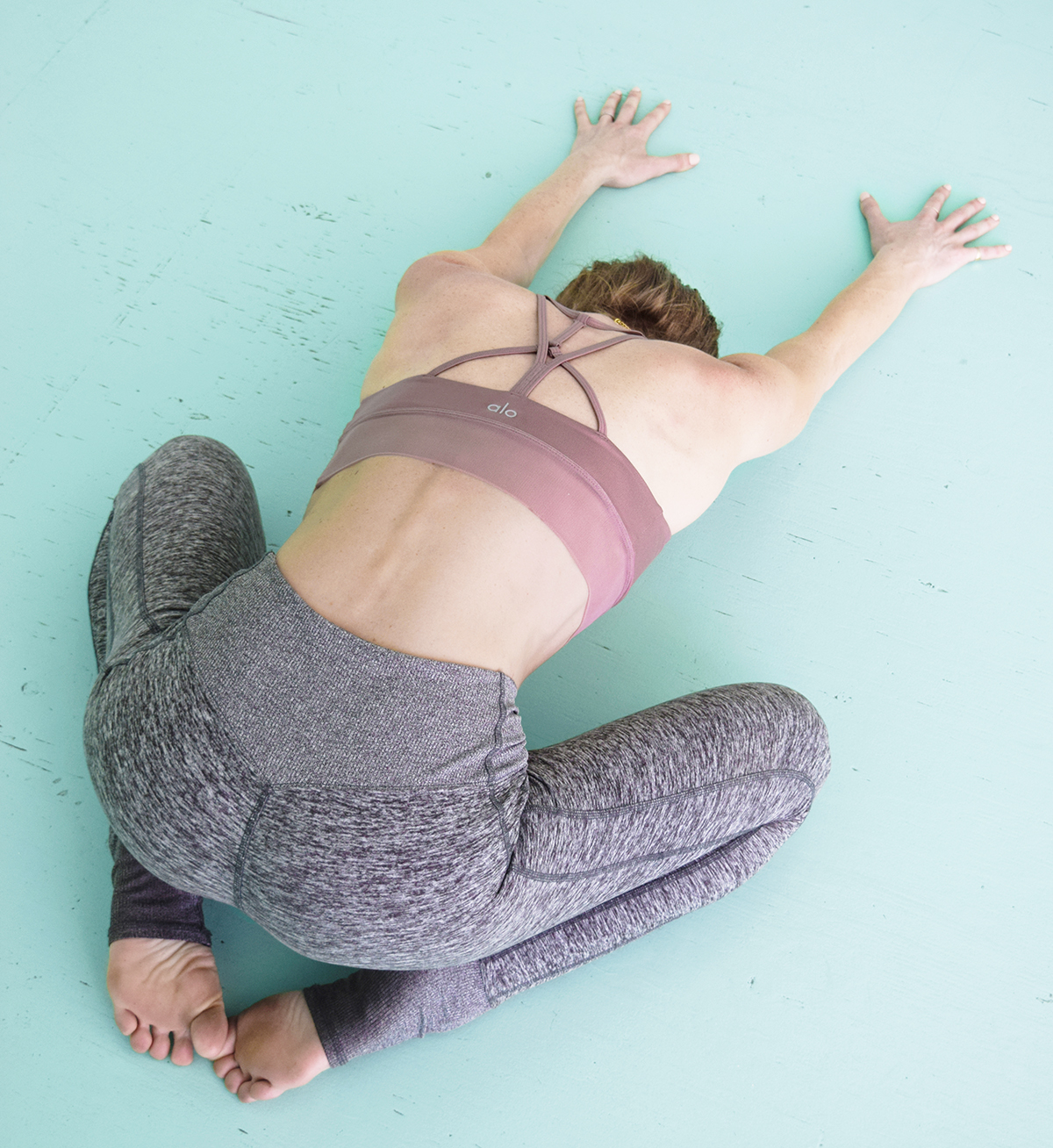
Lowering your head beneath your heart signals to the nervous system that it's time to slow down and relax, making Child's Pose a very restorative posture. To get there, spread your knees out as wide as is comfortable and pull your big toes together to touch. Guide your hips over your heels, and then slowly walk your palms forward. Gently rest your forehead on the floor.
2. Tree Pose
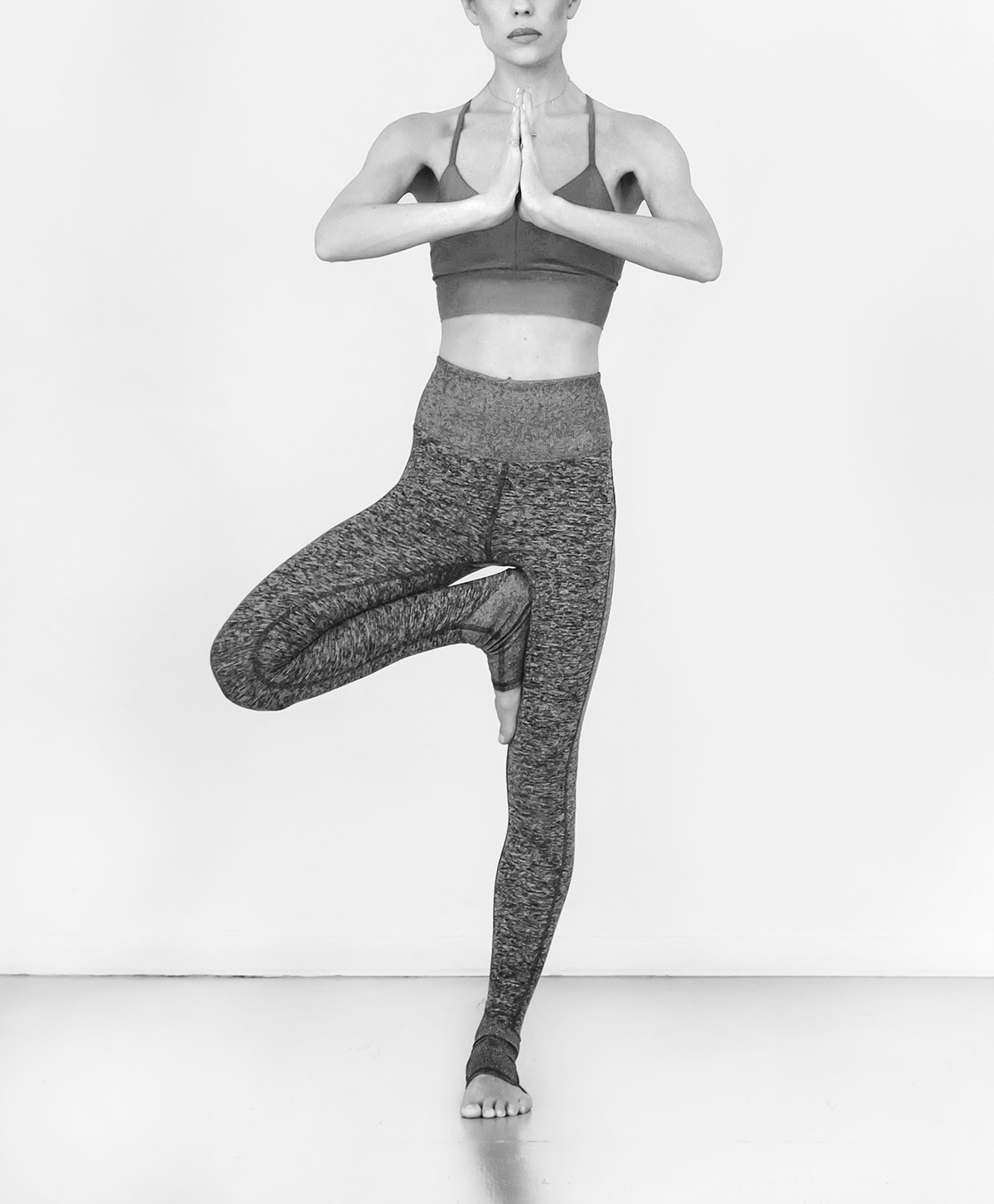
Balancing poses like the Tree Pose are great for encouraging focus and breath control to achieve stability. Begin by shifting weight onto your left foot. Next, bring the sole of your right foot to the inseam of your left leg and place it on either your calf or thigh. Once you’re standing tall with your shoulders, hips, and knees aligned, draw your hands to heart center and press your palms together. Breathe.
3. Pigeon Pose
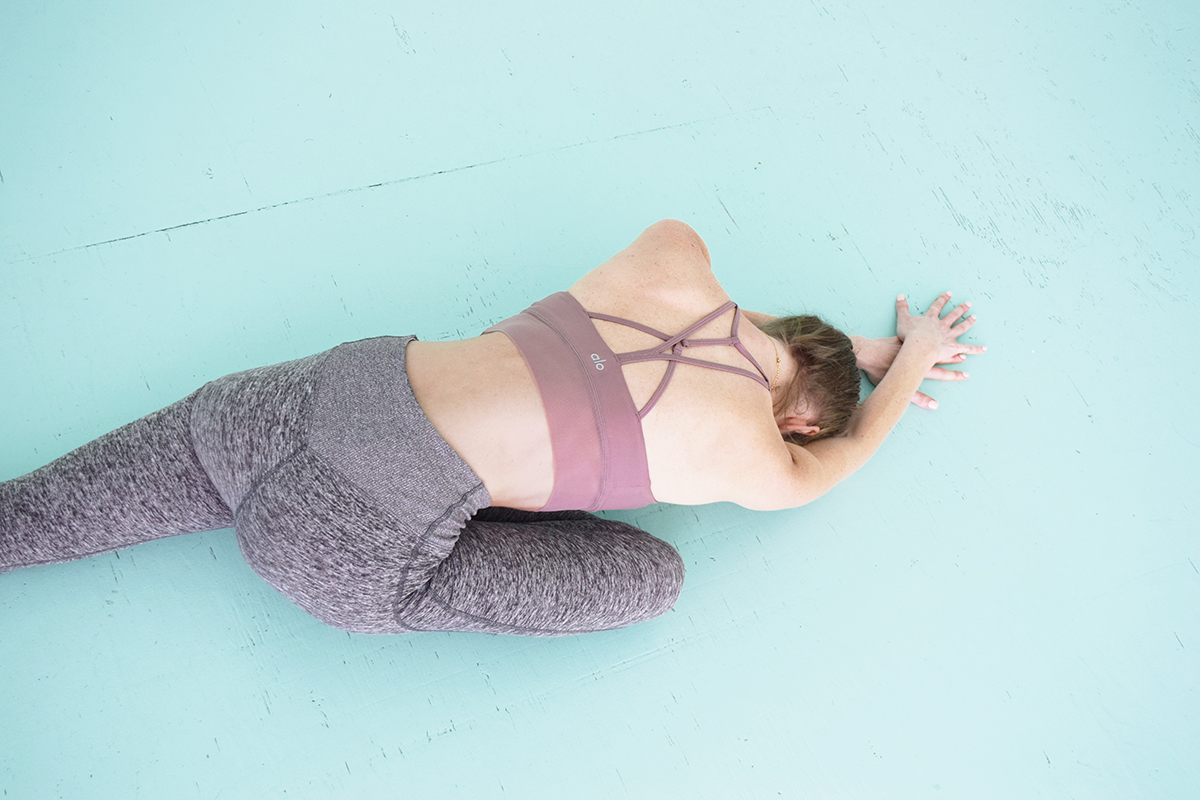
We tend to store a lot of emotion in our hips. Pigeon Pose lengthens the hip flexors, releasing stagnant energy. Come onto all fours with your hands shoulder-distance apart. Guide your right knee forward and place it on the floor just behind your right wrist. Extend your left leg straight behind you. Walk your palms back in line with your hips, puff up your chest—like a pigeon—then fold your torso over your thigh, bringing your forearms to the floor and resting your forehead on a block (or cushion).
4. Bridge Pose
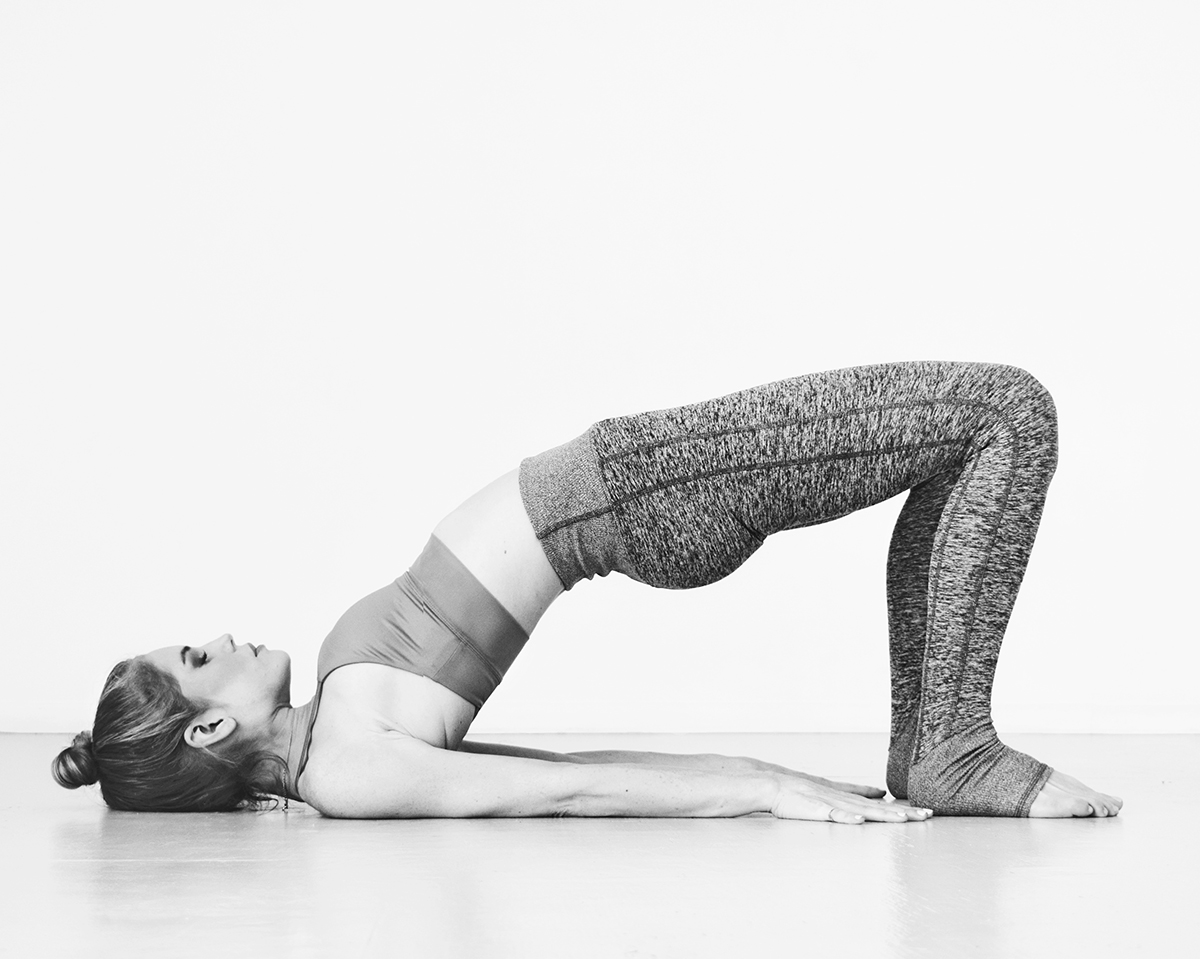
This gentle backbend works to improve posture by strengthening the muscles on the backline of the body. It also acts as a heart opener. Lie down on your back, arms at your sides, palms facing down. Bend your knees and plant your feet hip-distance apart. Next, walk your heels back toward your glutes until your knees are directly over your ankles. Lift your hips and chest up as you press your arms down. (You can modify this pose by placing a block, cushion, or rolled up blanket beneath your sacrum—the triangular bone at the base of the spine—for support.)
5. Savasana
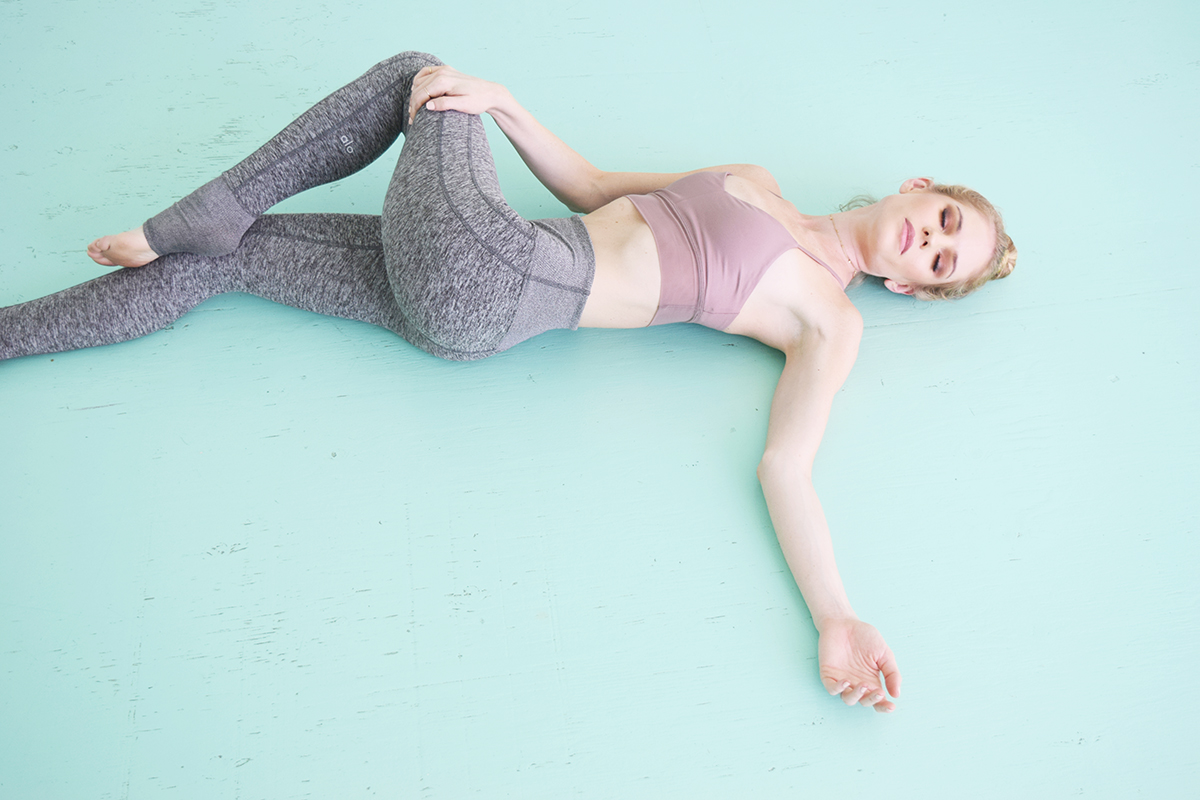
The best part of any yoga class! Savasana—otherwise known as Corpse Pose—promotes deep relaxation. Simply lie on your back and allow yourself a moment (or several) to find comfort in your body.
6. Shalabhasana (Locust)
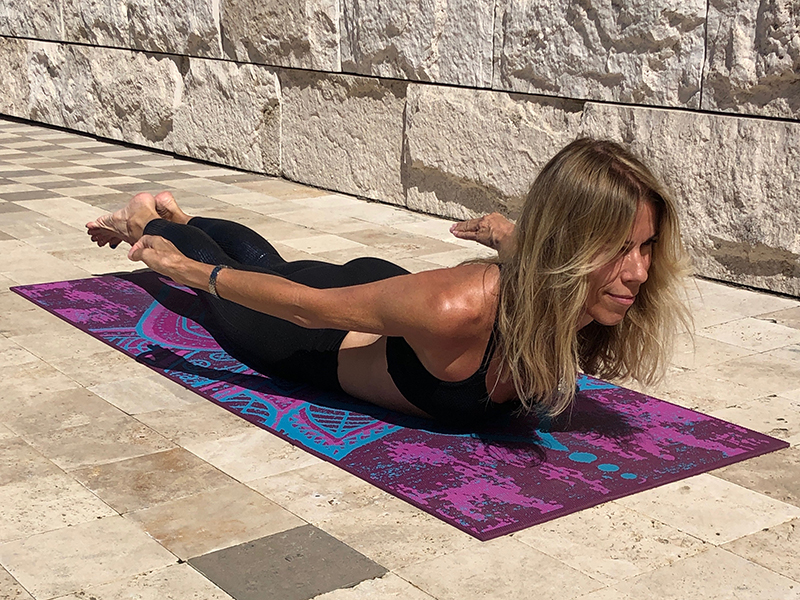
"This pose is a wonderful beginner's backbend which lengthens and strengthens muscles that support the entire back body," says Kirschen Katz, a private celebrity yoga instructor. "Adding Shalabhasana to our practice helps stimulate our kidneys and adrenals, enhances circulation, and helps us deepen our focus. We ground ourselves in Shalabhasana with our core and pubic bone linked to Mother Earth beneath us, which helps us feel safe and supported by this amazing connection."
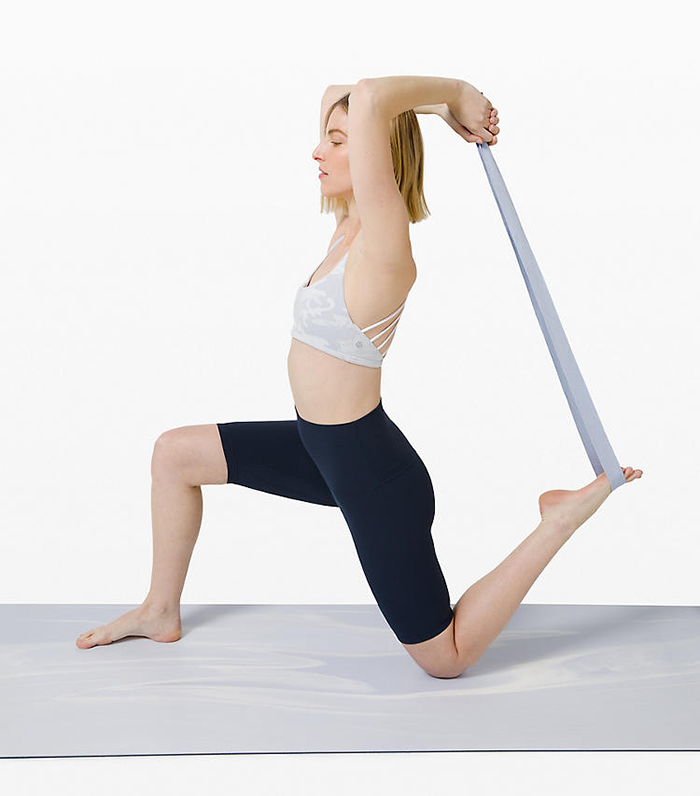
7. Adho Mukha Vrksasana (Handstands)
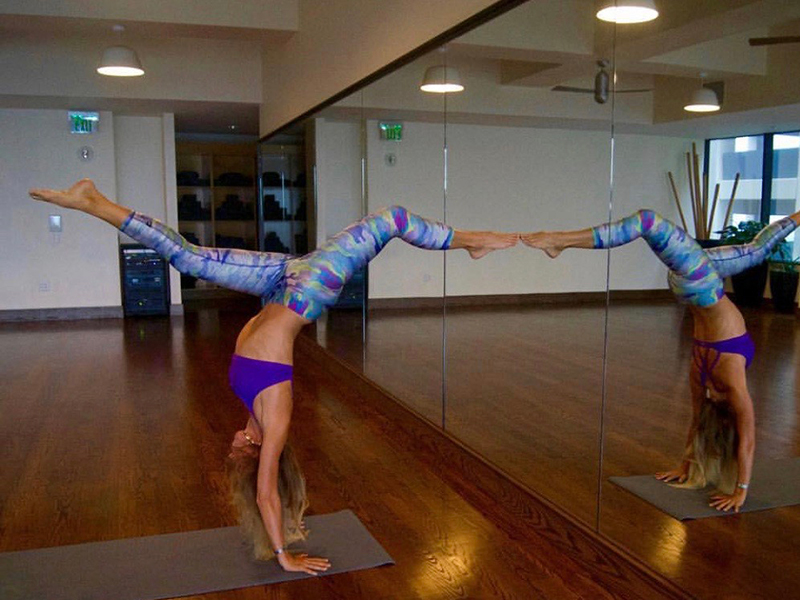
"This will greatly challenge you, but the benefits can be life-changing," explains Katz. "This dynamic pose creates tremendous vitality by reversing our flow of blood throughout our body to our brain, which then energizes our mind and shifts our internal perspective. Grounding refers to our overall state of well-being. And what is more grounding than rooting through our hands and absorbing all the earth's divine energy into our being?"
8. Natarajasana (Lord of the Dance)
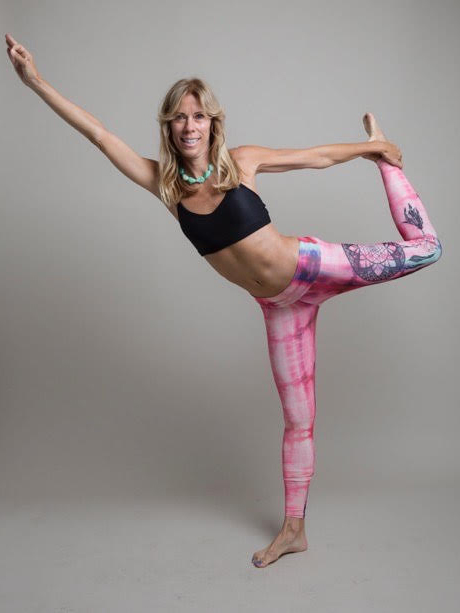
"My favorite of all the Asanas, Natarajasana is an amazing 'five poses in one' monster pose," Katz says. "It's a balancing, back-bending, quadricep-stretching, pectoral-lengthening, and most importantly heart-opening Asana. On top of all this action, it's a beautiful pose and makes us feel beautiful practicing it. With one leg grounding down and one arm soaring skyward, this dancing Asana creates a glorious union between earth and heaven."

Amanda McMorran is a Los Angeles
based yoga teacher.
Next up: 11 of the Best Yoga Brands, According to 3 Professional Instructors
This article was originally published at an earlier date and has since been updated.
This article is provided for informational purposes only and is not intended to be used in the place of advice of your physician or other medical professionals. You should always consult with your doctor or healthcare provider first with any health-related questions.


